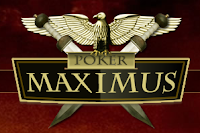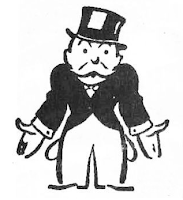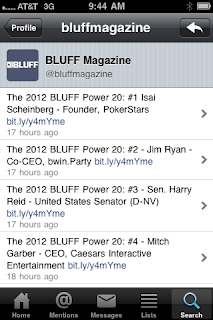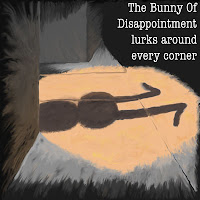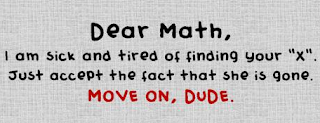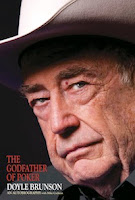A Bitar Taste
 Late yesterday PokerStrategy posted a very brief interview with Ray Bitar, one of Full Tilt Poker’s founders and CEO of Tiltware, the site’s software and marketing company. Or its “shell” company, we might more properly say.
Late yesterday PokerStrategy posted a very brief interview with Ray Bitar, one of Full Tilt Poker’s founders and CEO of Tiltware, the site’s software and marketing company. Or its “shell” company, we might more properly say. Bitar, of course, has become a much-reviled figure in the poker community thanks to his close involvement in the exceedingly poor management of FTP. Indeed, many single him out as a primary fall guy for the site’s many misdeeds, which include activities resulting in the site becoming the target of an indictment and civil complaint by the U.S. Department of Justice in April, further violations resulting in the loss of its license to operate and full shutdown in late June, and its apparent wasting away of the $350 million or so players thought they had in their accounts when the site went dark.
Amid “the rumble” we’ve lately been hearing several calls for Bitar, Howard Lederer, and/or Chris Ferguson to break their collective silence and say something about what happened to their popular online poker site. While Bitar was listed among those initially targeted by the DOJ’s indictment and civil complaint back in April, Lederer and Ferguson’s names were added as well in September to an amended version of the complaint.
It’s not really clear why those calls for these three to speak have become louder over the last few weeks, although I suspect the nearing of the one-year anniversary of Black Friday has something to do with it. I have said before here how I thought the petitions weren’t likely to be answered, as there seemed no reason now for Bitar, Lederer, or Ferguson to say anything at all given their considerable legal problems.
My initial thought, then, on hearing that Bitar had given an interview was to be surprised. Then I read the piece, another “exclusive” that recalls some of those we saw on PokerStrategy last fall when news of the possible purchase of FTP by Groupe Bernard Tapie first arose. I remember surmising then that perhaps FTP was settling some debts with its biggest affiliate by granting such traffic-heightening pieces.
Sort of feels like the same purpose has been served by this Bitar interview, which offers practically nothing of tangible value to FTP players but does certainly generate a lot of hits over on PokerStrategy, a site whose own CEO, Dominik Kofert, was recently voted as the 12th-most powerful person in poker on BLUFF’s Power 20. No slight to Matt Kaufman (he of the witty though now apparently erstwhile Poker Smell comic) who conducted the interview, but it’s pretty obvious there wasn’t much chance Bitar was going to offer much if anything for us to chew on.
Kaufman appeared on PKRGSSP’s show last night to give a little bit of background about the interview. It sounds like Kaufman had been bugging FTP attorneys (including Jeff Ifrah) to get an interview with Bitar and they’d long refused such requests. But this week they had “a change of heart,” saying “they wanted to do something.”
 Kaufman did allude to PokerStrategy’s significant affiliate-relationship with FTP as likely not unrelated to the site landing such “exclusives.” The prominence of the news and strategy site outside of the U.S. likely also encourages Full Tilt’s wish to deliver their messages there, since so many of those who could possibly play on a new version of FTP (if it were ever to be relaunched) are likely familiar with PokerStrategy.
Kaufman did allude to PokerStrategy’s significant affiliate-relationship with FTP as likely not unrelated to the site landing such “exclusives.” The prominence of the news and strategy site outside of the U.S. likely also encourages Full Tilt’s wish to deliver their messages there, since so many of those who could possibly play on a new version of FTP (if it were ever to be relaunched) are likely familiar with PokerStrategy. So Ifrah requested the interview and asked for questions to be submitted -- which were then vetted -- and answers were emailed back to Kaufman with no chance for follow-ups (obviously). The questions that were chosen were all of a very general nature, asking Bitar why he hasn’t spoken before, what he’s been doing since Black Friday, and “is there anything you would like to say?” And the answers were all very general as well, stating essentially that Bitar still hoped to get players their money, that he also hoped Full Tilt would somehow survive this mess in some form or another, and that he was sorry.
There is a lot of redundancy, too, among the responses. Even though his three answers only total about 450 words, Bitar managed to repeat the declaration that he is working toward getting players paid and keeping Full Tilt Poker alive no less than six times.
Bitar says that he has “been working every single day since Black Friday to ensure players are repaid,” which he calls his “top priority.” His also says his “primary focus has been and continues to be... the repayment of the players and the survival of the company.” And again, he mentions he is “doing everything possible” to make these things happen.
“I spend a good deal of my time making sure that FTP survives and that the players get paid,” Bitar goes on to say. “I continue to work on these issues, day and night until we resolve them,” he adds. And, in case we missed it before, he once more reminds us his “entire focus is on obtaining a successful resolution for the players.”
Alas, it’s hard not to be cynical and call the Bitar interview a weak echo of one of those FTPDoug “updates” that strung us along last spring and summer. Even the phrasing directly recalls those spoonfuls of poorly-conceived PR applesauce in which the mouthpiece informed us time and again that FTP “has worked tirelessly” and are “absolutely committed” and “we have been working around the clock to get this done” and so on. Recall as well how those updates often concluded with statements -- again, like Bitar’s -- that “it has not been easy to stay silent and watch the damage being done to our company brand.”
 So while I was surprised Bitar spoke at all, it isn’t that much of a surprise to find him sounding a lot like FTPDoug, since we all knew FTPDoug wasn’t speaking for himself, but just passing along what the higher-ups -- including Bitar -- told him to report. (At least he didn’t repeat another of FTPDoug’s infamous statements -- highlighted by the DOJ in the amended civil complaint in September -- that “your funds remain safe and secure at FTP.”)
So while I was surprised Bitar spoke at all, it isn’t that much of a surprise to find him sounding a lot like FTPDoug, since we all knew FTPDoug wasn’t speaking for himself, but just passing along what the higher-ups -- including Bitar -- told him to report. (At least he didn’t repeat another of FTPDoug’s infamous statements -- highlighted by the DOJ in the amended civil complaint in September -- that “your funds remain safe and secure at FTP.”)Thus, as I say, there’s nothing tangible to take away from Bitar’s bite-sized blurbs. But really, why would we think he’d feed us anything? We already knew the shell game had ended long before. And that there wasn’t a single pea under any of them.
Labels: *the rumble, Black Friday, Full Tilt Poker, PokerStrategy, Ray Bitar

